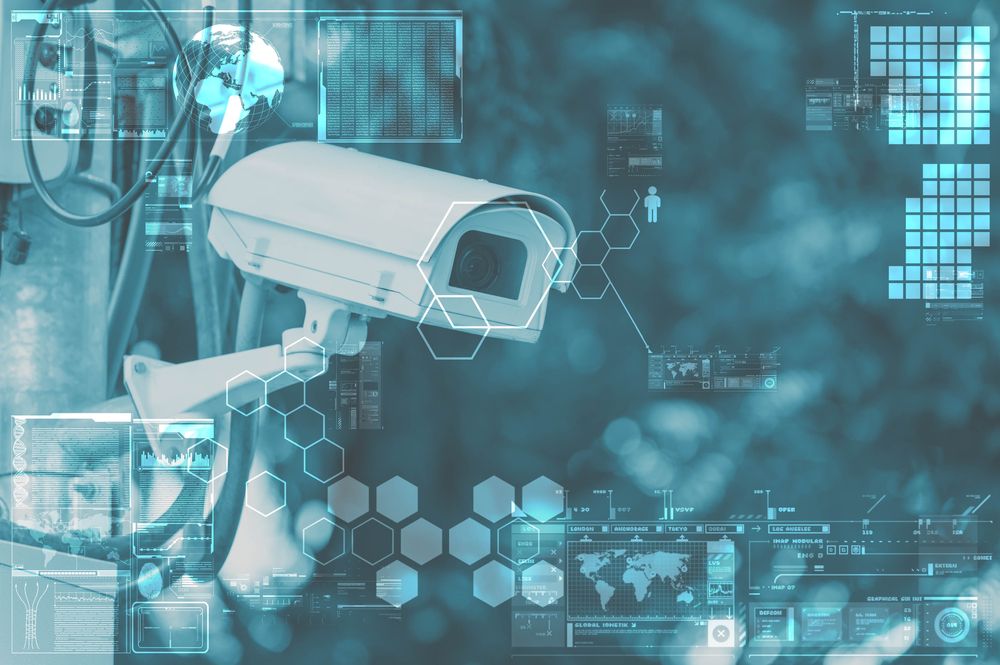When it comes to state-sponsored AI surveillance of citizens, most people usually tend to associate the nefarious practice with authoritarian countries like China. However, a new study shows that liberal democracies as a collective seem more proactive in deploying artificial intelligence systems for mass surveillance.
As counter-intuitive as it is, the AI Global Surveillance (AIGS) Index by global think tank Carnegie Endowment claims that more than half of advanced democracies currently have some form of AI surveillance system actively snooping on citizens.
A growing number of states are deploying #AI surveillance tools to monitor, track, and surveil citizens.
— Carnegie Endowment (@CarnegieEndow) September 17, 2019
This new interactive map shows where—and how—these tools are being used. 🖥️🗺️@SteveJFeldstein https://t.co/VBdAcernXF pic.twitter.com/dBmTn7SBJn
AI Surveillance Active in 75 Countries
The AIGS index surveyed 176 countries worldwide and found that the governments in at least 75 of them are currently using mass surveillance systems powered by artificial intelligence. According to the index, liberal democracies are currently the biggest markets for AI surveillance systems. Governments in 51% of advanced democracies are using these systems — mostly in the name of ‘internal security.’ Compared to that, only 37% of closed autocratic states and 41% of electoral autocracies have so far deployed these systems. The Carnegie Endowment report skips over some of the important details such as which country deploys what AI monitoring system and so on. This is mostly because governments are usually very secretive about such programs for obvious security reasons (in many cases, also due to the fear of possible backlash from citizens). The AI systems in use vary from country-to-country, but consist mainly of one or more of the following three platforms:
The AI systems in use vary from country-to-country, but consist mainly of one or more of the following three platforms:
- Smart city or safe city platforms — active in at least 56 countries.
- Facial recognition systems — active in 64 countries.
- Smart policing — active in 52 countries.
China Takes the Cake
Predictably, China has been named the largest provider of AI surveillance systems by the AIGS index. Chinese companies that have made strides in the global trade of surveillance technology include Huawei, ZTE, Dahua, and Hikvision. Together, these companies supply AI surveillance systems to at least 62 countries, about half of which are participants in the Belt and Road Initiative (BRI). Huawei is the single largest provider of AI surveillance systems and is believed to have ties with governments in no less than 50 countries. American companies, while not yet as dominant as their Chinese counterparts, are slowly catching up in the trade. IBM, for example, reportedly supplies AI surveillance technology to 11 countries, whereas Palantir and Cisco are believed to have scored similar deals from nine and six world governments respectively. Companies based out of other liberal democracies including Japan, France, Israel, and Germany are also making steady progress in the development and production of AI mass surveillance systems.
While almost all surveillance systems in China are homegrown, the U.S. government seems to be depending on a mixture of technologies from Chinese and American companies. Russia is also using AI surveillance systems provided by the Chinese, as well as American companies. Canada seems to be the only country that is almost 100% dependent on U.S. surveillance technology.
Would you agree that all governments in electoral democracies should come clean about their policy on mass surveillance rather than going down the slippery slope leading to autocracy? Share your thoughts in the comments below.
Companies based out of other liberal democracies including Japan, France, Israel, and Germany are also making steady progress in the development and production of AI mass surveillance systems.
While almost all surveillance systems in China are homegrown, the U.S. government seems to be depending on a mixture of technologies from Chinese and American companies. Russia is also using AI surveillance systems provided by the Chinese, as well as American companies. Canada seems to be the only country that is almost 100% dependent on U.S. surveillance technology.
Would you agree that all governments in electoral democracies should come clean about their policy on mass surveillance rather than going down the slippery slope leading to autocracy? Share your thoughts in the comments below.
Images courtesy of Twitter, Shutterstock.
Disclaimer
In adherence to the Trust Project guidelines, BeInCrypto is committed to unbiased, transparent reporting. This news article aims to provide accurate, timely information. However, readers are advised to verify facts independently and consult with a professional before making any decisions based on this content. Please note that our Terms and Conditions, Privacy Policy, and Disclaimers have been updated.

David Hundeyin
David is a journalist, writer and broadcaster whose work has appeared on CNN, The Africa Report, The New Yorker Magazine and The Washington Post. His work as a satirist on 'The Other News,' Nigeria's answer to The Daily Show has featured in the New Yorker Magazine and in the Netflix documentary 'Larry Charles' Dangerous World of Comedy.'
In 2018, he was nominated by the US State Department for the 2019 Edward Murrow program for journalists under the International Visitors Leadership...
David is a journalist, writer and broadcaster whose work has appeared on CNN, The Africa Report, The New Yorker Magazine and The Washington Post. His work as a satirist on 'The Other News,' Nigeria's answer to The Daily Show has featured in the New Yorker Magazine and in the Netflix documentary 'Larry Charles' Dangerous World of Comedy.'
In 2018, he was nominated by the US State Department for the 2019 Edward Murrow program for journalists under the International Visitors Leadership...
READ FULL BIO
Sponsored
Sponsored
